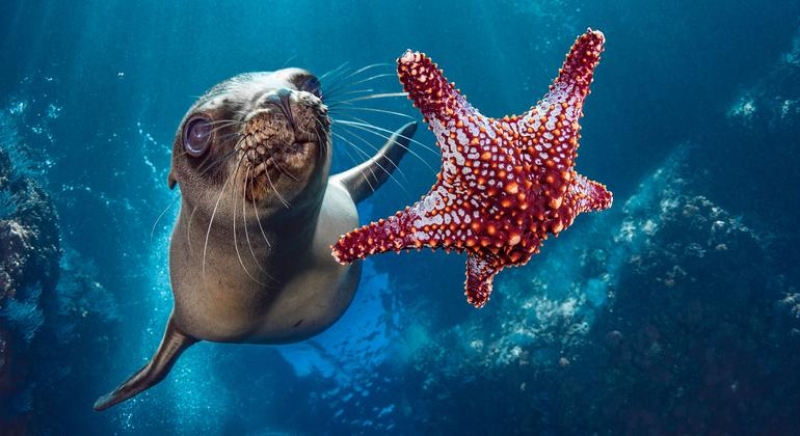- New Approach Must for Dhaka to Break Climate Aid Debt Trap |
- UN High Seas Treaty Clears Ratification, Set for 2026 |
- UAE Suspends Visas for Bangladesh, Eight Other Nations |
- Young disabled people of BD vow to advocate for peace |
- World Leaders Urged to Defend Human Rights and Justice |
UN High Seas Treaty Clears Ratification, Set for 2026

© Ocean Image Bank/Hannes Klost – A sea lion swims past a starfish, highlighting the vibrant biodiversity of marine ecosystems.
A landmark UN treaty to safeguard marine biodiversity on the high seas has reached the required 60 ratifications for entry into force, paving the way for it to take effect in January 2026.
Morocco and Sierra Leone ratified the pact on Friday, becoming the 60th and 61st parties.
The treaty, formally known as the Agreement under the United Nations Convention on the Law of the Sea on the Conservation and Sustainable Use of Marine Biological Diversity of Areas Beyond National Jurisdiction (BBNJ agreement), was adopted by UN Member States in June 2023 after nearly two decades of negotiations.
A historic achievement
Secretary-General António Guterres welcomed the development, calling it a “historic achievement for the ocean and for multilateralism.”
“In two years, States have turned commitment into action – proving what is possible when nations unite for the common good,” he said in a statement.
“As we confront the triple planetary crisis of climate change, biodiversity loss, and pollution, this agreement is a lifeline for the ocean and humanity.”
Protecting two-thirds of the oceans
The pact – also called the “high seas treaty” – covers two-thirds of the world’s ocean area that lies beyond national boundaries.
It establishes legally binding rules to conserve and sustainably use marine biodiversity, share benefits from marine genetic resources more fairly, create protected areas, and strengthen scientific cooperation and capacity building.
Foundation of our existence
UN Environment Programme (UNEP) Executive Director Inger Andersen also hailed the milestone.
“Our ocean is the foundation of our very existence. Today we took an important step forward to save our ocean, and to save our future,” she said in a social media post.
Safeguarding humanity’s future
The BBNJ agreement builds on the UN Convention on the Law of the Sea, often regarded as the “constitution for the oceans.”
Once it enters into force on 17 January 2026, the treaty will provide a global framework to help achieve international biodiversity targets, including the pledge to protect 30 per cent of land and sea areas by 2030 under the Kunming-Montreal Global Biodiversity Framework.
Mr. Guterres urged all remaining UN Member States to join without delay and called on partners to support its swift and full implementation.
“The ocean’s health is humanity’s health,” he said.

